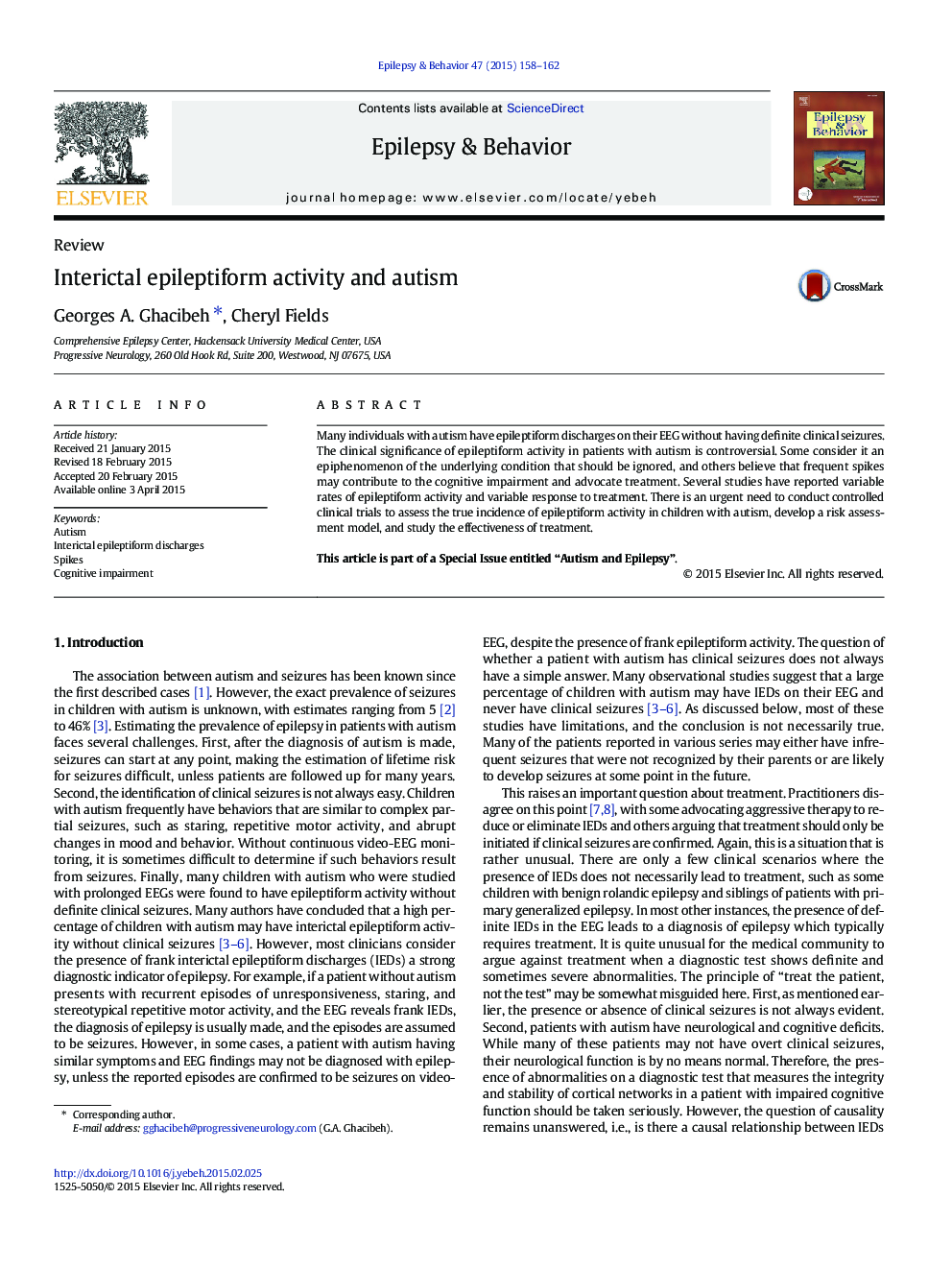| Article ID | Journal | Published Year | Pages | File Type |
|---|---|---|---|---|
| 6011069 | Epilepsy & Behavior | 2015 | 5 Pages |
â¢Many patients with autism have interictal epileptiform discharges on their EEG without definite clinical seizuresâ¢The clinical significance of epileptiform activity in patients with autism is controversialâ¢It is not clear if epileptiform discharges contribute to cognitive impairment, or are mere epiphenomena of the underlying conditionâ¢Only a few studies have addressed the question of treating spikes in autistic patients and there are no controlled trials to support the decision to treat or notâ¢There is an urgent need to perform controlled clinical trials to answer this important question
Many individuals with autism have epileptiform discharges on their EEG without having definite clinical seizures. The clinical significance of epileptiform activity in patients with autism is controversial. Some consider it an epiphenomenon of the underlying condition that should be ignored, and others believe that frequent spikes may contribute to the cognitive impairment and advocate treatment. Several studies have reported variable rates of epileptiform activity and variable response to treatment. There is an urgent need to conduct controlled clinical trials to assess the true incidence of epileptiform activity in children with autism, develop a risk assessment model, and study the effectiveness of treatment.This article is part of a Special Issue entitled “Autism and Epilepsy”.
